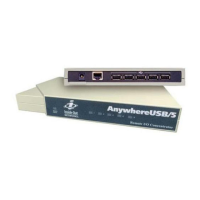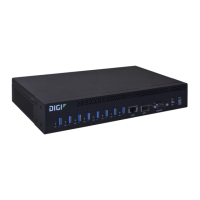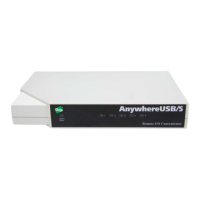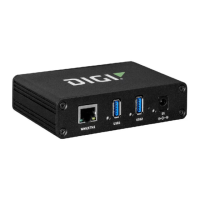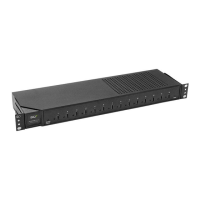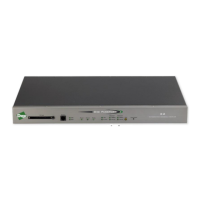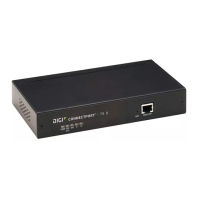User authentication LDAP
AnywhereUSB® Plus User Guide
352
LDAP user configuration
When configured to use LDAP support, the AnywhereUSB Plus device uses a remote LDAP server for
user authentication (password verification) and authorization (assigning the access level of the user).
Additional LDAP servers can be configured as backup servers for user authentication.
This section outlines how to configure a LDAP server to be used for user authentication on your
AnywhereUSB Plus device.
There are several different implementations of LDAP, including Microsoft Active Directory. This section
uses OpenLDAP as an example configuration. Other implementations of LDAP will have different
configuration methods.
Example OpenLDAP configuration
With OpenLDAP, users can be configured in a text file using the LDAP Data Interchange Format (LDIF).
In this case, we will be using a file called add_user.ldif.
1. Create the add_user.ldif file in a text editor. For example:
$ gedit ./add_user.ldif
2. Add users to the file using the following format:
dn: uid=john,dc=example,dc=com
objectClass: inetOrgPerson
cn: John Smith
sn: Smith
uid: john
userPassword: password
ou: admin serial
n
The value of uid and userPassword must correspond to the username and password
used to log into the AnywhereUSB Plus device.
n
The ou attribute is optional. If used, the value must correspond to authentication
groups configured on your AnywhereUSB Plus. Alternatively, if the user is also
configured as a local user on the AnywhereUSB Plus device and the LDAP server
authenticates the user but does not return any groups, the local configuration
determines the list of groups. See Authentication groups for more information about
authentication groups.
Other attributes may be required by the user’s objectClass. Any objectClass may be used as
long it allows the uid, userPassword, and ou attributes.
3. Save and close the file.
4. Add the user to the OpenLDAP server:
$ ldapadd -x -H 'ldap:///' -D 'cn=admin,dc=example,dc=com' -W -f add_
user.ldif
adding new entry "uid=john,dc=example,dc=com"
5. Verify that the user has been added by performing an LDAP search:
$ ldapsearch -x -LLL -H 'ldap:///' -b 'dc=example,dc=com'
uid=john
dn: uid=john,dc=example,dc=com
